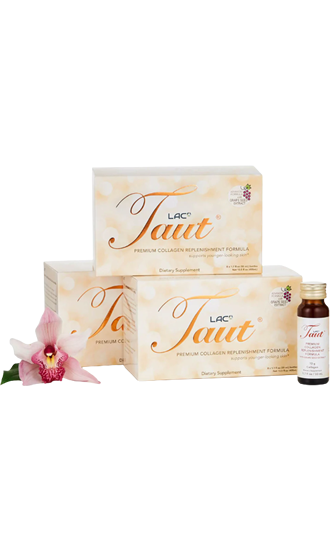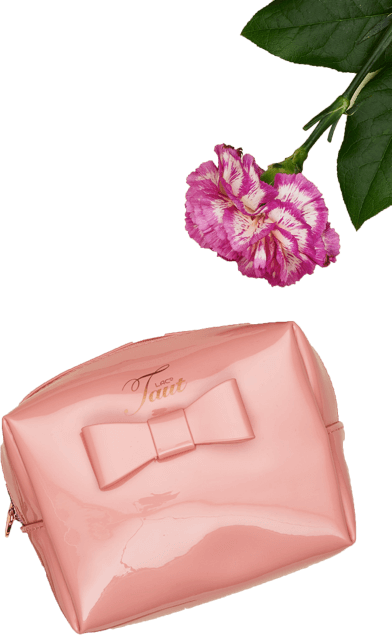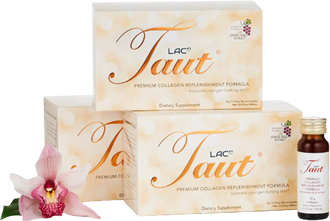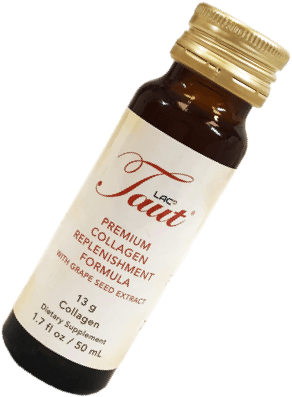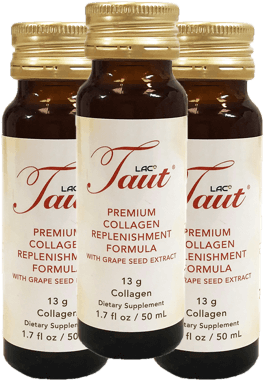Thinning Hair: Why Is My Hair Thinning? Top Treatment & Remedies for Women
Sidestep thinning hair and baldness. You CAN have thicker and fuller hair.

Are you concerned with thinning hair or hair loss? If so, you're not alone!
Besides wrinkles and sagging skin, hair loss and thinning hair are the biggest concern for women and men.
Contrary to popular belief, hair loss is not a disease that only affects guys. Women actually make up 40% of hair loss sufferers, according to the American Hair Loss Association. Hair loss can be absolutely devastating for women. Losing your crowning glory may make you feel unattractive and hurt your self-esteem.1
Collagen drink benefits are a boon for hair loss sufferers who are looking for ways to combat shedding and grow thicker, fuller hair. As collagen production in your body starts to decline as you age, your hair becomes more vulnerable to breakage and loss. Taking a good collagen supplement may help replace lost collagen and increase your body’s hair-building proteins.
Let's take a closer look at how collagen may be able to help you treat thinning hair and give life back to your luscious locks.
Shop our best skin care product here!
The Difference Between Hair Shedding & Hair Loss (What Is Thinning Hair?)
According to the American Academy of Dermatology Association, it’s normal to lose between 50 and 100 hairs from your head per day. But, if you notice more hairs collecting on your pillow than usual, it could be a sign that you’re experiencing hair shedding or hair loss.2
So, what’s the difference between the two? We’ll explain.
Hair Shedding (Telogen Effluvium)
Some of us are naturally a part of the thin hair club, but if you’ve been wondering “why is my hair thinning all of a sudden?” you may be experiencing hair shedding, or telogen effluvium. There are a few causes of thinning hair in women. Some of the factors that contribute to shedding include:
- High emotional or physical stress levels
- Traumatic events such as giving birth
- Drastic change in diet or significant weight loss
- Undergoing surgery
- Experiencing a serious illness or health condition
- Stopping hormonal contraception 3
- Hormonal changes during pregnancy and breastfeeding
In most cases, hair loss is temporary and new strands start to grow back a few months after the stressful event has passed. Typically women and men who struggle with this type of thinning of hair will notice their hair start to grow back and regain its usual thickness within six to nine months.
More helpful reading: Low estrogen symptoms
Hair Loss (Thinning Hair & Women)
As opposed to temporary hair shedding, hair loss (otherwise known by the medical term alopecia) refers to the hair thinning or appearance of bald spots that occurs when hair stops growing altogether. While male pattern baldness is more common than female pattern baldness, around one-third of women will notice some form of hair loss in their lifetime—it’s a perfectly normal part of the aging process. There are many different types of alopecia including:
- Alopecia areata: Alopecia areata is also referred to as spot baldness. These patches of hair loss are often the size of the coin and can appear on the head, but can affect the whole body as well.4
- Androgenic alopecia: When men and women experience hormonal changes which result in hair loss this is called androgenic alopecia. An increase in production of the male sex hormones due to an underlying medical condition can cause hair loss and baldness.5
- Alopecia totalis: This form of hair loss goes beyond female pattern baldness and male pattern baldness. Patients with this form of hair loss lose all of the hair from their scalp.6
- Alopecia universalis: People with alopecia universalis lose hair on all areas of the body, not just the scalp.
- Ophiasis alopecia areata: This type of alopecia areata called Ophiasis will typically cause hair loss around the hairline in a snake-like pattern. One case study showed that microneedling treatment improved ophiasis alopecia areata and resulted in almost complete hair regrowth and volume.7

More helpful reading: Dry scalp treatment
While many of these forms of hair loss are caused by genetic predisposition, hormonal changes, or underlying medical conditions, other factors of female thinning hair include:
- Harsh hair care products
- Hairstyles that pull on the hair
- Poor nutrition
- Cancer treatments
- Certain underlying medical conditions
If you’re suffering from female pattern baldness or hair loss, your hair will not grow back until you address the underlying cause. The good news is, you can help prevent and treat women’s hair loss by making a few changes to your diet and lifestyle and adding a collagen supplement to your daily regimen.
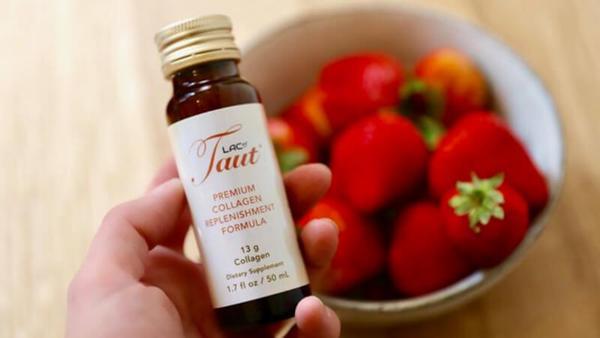
More helpful reading:
https://www.renewskinco.com/blogs/i/how-long-does-it-take-for-collagen-supplements-to-work
Common Hair Loss Treatment Options (Help For Thinning Hair)
Some women who experience hair loss decide to cover up their thin hair or bald spots by changing their hairstyle or wearing hats. Before resorting to these solutions, however, you may be happy to find out that many people are able to reverse their hair loss.
There are a few thinning hair remedies and lifestyle changes that can improve hair loss. These treatments can improve the look of thin hair and help grow new hair by promoting proper scalp health. If you’re looking for help with thinning hair, we’ve put together a few of the most common hair loss treatment options recommended by health experts and medical professionals.
More helpful reading: How to get thicker hair
Use Gentle Shampoo & Conditioner
Have you found yourself feeling overwhelmed in the drugstore aisle while choosing the right hair care products? While it can be easy to reach for the products you’ve been using for years, those same products could be affecting your hair loss.
If your hair is thinning, you may want to take a look at the ingredients in your shampoo and conditioner. Harsh ingredients can disturb the health of your scalp, strip too much of its natural oil, and cause all kinds of problems (i.e. make your thinning hair even worse). According to one literature review, some of the chemicals that can impair hair growth and damage existing hair include preservatives, antimicrobials, and surfactants. That means, when shopping for shampoo and conditioner, try to avoid ingredients like formaldehyde, fragrance, isopropyl alcohol, and parabens. Instead, keep an eye out for gentle products that contain moisturizing ingredients like argan oil and vitamin e, and nutrients that promote liquid collagen for hair growth like biotin and keratin.8, 9

More helpful reading by RenewSkin Inc.:
https://www.renewskinco.com/blogs/i/top-13-skin-care-ingredients-to-avoid
Improve Hair Health with Hyaluronic Acid
It’s essential to focus on scalp health if you want to grow healthy hair. Treatments that keep your scalp clean and minimize the production of oils can promote hair growth. Hyaluronic acid is a popular humectant ingredient (read: moisture magnet) that is typically used topically or injected into the dermis to smooth wrinkles and increase volume. When managing hair loss, however, many people turn to hyaluronic acid treatments like shampoos, leave-in conditioners, serums, and oils which can have benefits for hair health such as:
- Promoting collagen production: Since hyaluronic acid molecules can hold on to 1000 times their weight in water, the scalp is able to stay thoroughly hydrated. When your scalp is hydrated, the collagen molecules can better support the hair follicles and allow them to produce new hair.
- Preventing dryness: Scratching your dry, itchy scalp can damage the individual hair follicles. Therefore, keeping it moisturized and hydrated is not only essential for hair health, but also for preventing further, unintended damage that can affect the growth of individual strands of hair.
- Hydrating the scalp: When the scalp gets dry, it’s normal for your glands to produce oils to help keep it hydrated. Too much oil, however, and the oil can end up clogging the follicles that grow new hair. Applying hyaluronic acid can keep your head well-hydrated to prevent the problems that arise with excess oil production.10
While topical treatments can only go so far in treating thin hair, taking oral supplements like our Taut Hydrate Vegan Supplement, can help support hair health and could help regrow stronger hair. These plant-derived hyaluronic acid pills are able to fill, hydrate, and plump the dermis from deep within and act as a nourishing agent to support collagen function. As a bonus, the formula contains grape seed extract, a powerful antioxidant that fights free radicals to protect the hair and dermis.
More helpful reading from RenewSkin Inc.:
https://www.renewskinco.com/blogs/i/hyaluronic-acid-benefits
Eat a Nutritious Diet
We’re sure you’re tired of hearing about the benefits of eating a nutritious diet, but when it comes to women’s hair loss, studies have shown that calorie deficit and low-protein diets can make alopecia and thinning hair worse. And, if your diet is lacking in certain vitamins and minerals like biotin, protein, omega 3 fatty acids, vitamin B complex, or vitamins A, C, D, and E, you may lose hair as a result.11
The good news is certain ways of eating can help promote healthy hair and hair regrowth. Adding nutritious foods that are good for your skin and hair into your diet that are full of vitamins, healthy fats, and protein can impact your hair health and promote regrowth. Some of the best foods for hair health and growth include:
- Fish (salmon, mackerel, and herring)
- Avocados
- Eggs
- Nuts and seeds
- Seafood (shrimp and oysters)
- Red meat
More helpful reading on keto skin, and hair.
Stop Smoking
From wrinkles and smoking lips to lung cancer, there are a billion reasons why you should stop smoking. If you’re a smoker, you might not be surprised to hear that one cause of thinning hair is smoking. Smoking can harm the DNA that affects the hair follicles on your head and cause androgenetic alopecia. Not only can smoking disrupt the natural hair growth cycle and make you go bald, but the exposure to free radicals can also make your hair lose color and turn gray or white sooner than it normally would.12
More helpful reading from RenewSkin Inc.:
https://www.renewskinco.com/blogs/i/dead-skin
Include More Antioxidants into Your Routine
We are constantly exposed to free radicals. As we age, our body’s ability to fight free radicals starts to decrease, while the production of free radicals increases. This is when oxidative stress occurs. Oxidative stress can cause a range of medical conditions from hair loss to cancer.
While we can always add more free-radical-fighting foods into our diet like dark chocolate, berries, and nuts, supplementing with a powerful antioxidant, like Masquelier’s French Pine Bark Original OPC is one of the best forms of protection from free radical damage.
These tablets are clinically studied and scientifically proven to neutralize excess free radicals and toxins and strengthen your vascular system for maximum blood flow and blood circulation throughout the body, including the scalp.
This antioxidant also acts as a protector and vitamin for collagen, which can improve the quality and health of the hair and scalp. With regular use of this treatment, women typically also experience other benefits like a reduction of fine lines and wrinkles, a more supple complexion, and a strengthened immune system.13
Get Plenty of Sleep
As it turns out, beauty sleep is a real thing. The number of hours you sleep can affect your dermal health, body composition, stress levels, and your hair. Not only can the stress of not sleeping soundly or for a long enough period cause your scalp’s glands to produce more oil, but it can also affect the hormones that make your hair grow.
A few studies have shown that melatonin, the hormone that helps you go and stay asleep, has a huge impact on new hair growth in women and men with androgenetic alopecia and general hair loss. In fact, one study showed that applying topical melatonin treatments can improve hair regrowth.14
More helpful reading:
https://www.renewskinco.com/blogs/i/sleep-and-skin-aging
Take Medication (Minoxidil)
If you’ve gotten your female pattern hair loss examined by a dermatologist or other medical doctor, they have likely suggested taking specific medications as a form of treatment. One of the most common treatments is minoxidil (also called Rogaine).
Minoxidil is a treatment for thinning hair that is effective at helping regrow hair, especially for women with androgenetic alopecia. To use minoxidil, all you need to do is rub the treatment onto your scalp twice a day, every day. It can take anywhere from 6 to 12 months to see an improvement in hair regrowth.
While Rogaine is a great option for treating thinning hair in women, it should be used consistently as a permanent form of treatment. That’s because hair loss is likely to reoccur once the treatment has stopped.
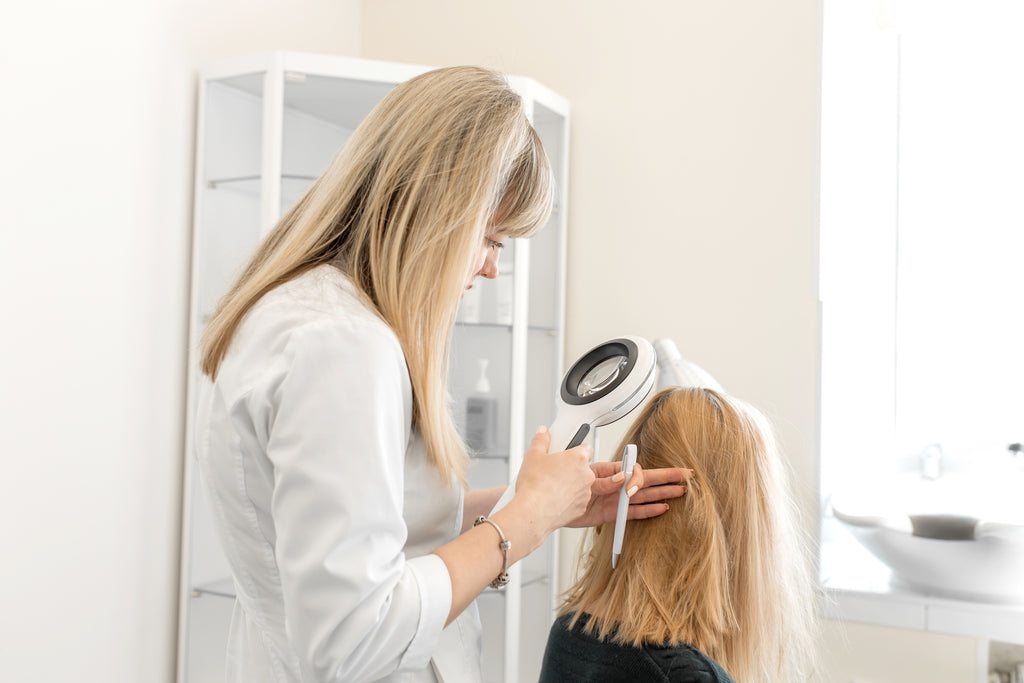
The Connection Between Collagen & Hair Loss
In February of 2016, a team of researchers in Japan discovered that decreasing collagen levels near hair follicle stem cells is linked to women’s and men’s hair loss. The lack of this particular type of collagen, type XVII collagen, leads to the damage of hair follicle DNA. How many mg of collagen per day?
Scientists observed this phenomenon in mice that were 18 months old, which is the age at which mice start to lose their hair. Older mice have fewer, thinner hair follicles than younger mice. The study showed that hair loss was less common in aging mice that continued to produce collagen.15
In mice that lack type XVII collagen, the damaged stem cells turn into dermal cells and are sloughed off like dandruff. This leads to hair follicle shrinkage and hair loss. Scientists believe that the same mechanism applies to humans.
In a separate study of the human scalp, the Japanese researchers found that the hair follicles of women in their 50s and older were smaller than the follicles of women in their 30s and 40s. Scientists are excited about these findings because they could help them find the cure for baldness.16
What's the link between collagen and hair growth? RenewSkin Inc. explains.
Collagen: The Secret Ingredient Offering Hope for Female Pattern Hair Loss
Collagen is well known for helping to restore a youthful complexion, but its benefits are more than skin deep. Collagen is a naturally occurring protein in the body that is essential to a healthy dermis, hair, and nails. Collagen is the building block of the hair and surrounds each strand, so it is key to your hair’s quality and it structurally reinforces it.
Learn more about collagen meaning here.
The primary component of hair is keratin protein, which is produced most effectively by the body when there is an adequate supply of amino acids in your bloodstream. This supply of amino acids can be increased by drinking high-potency collagen supplements, as it is quickly absorbed by the small intestine. The amino acids in the supplement are used by the hair follicle cells to produce this critical keratin protein.
Collagen also increases and improves normal blood circulation. And, increasing blood flow to your scalp is directly beneficial in promoting hair and scalp health.
Another benefit is your hair follicles will receive the required nutrients, which in turn, assists your hair in growing faster.
Unfortunately for many of us, as we age, our hair can become coarse and dry. Drinking a high-potency liquid collagen supplement every day can be helpful to treat brittle, dry hair, as collagen increases the moisture level in hair and aids in repairing those annoying split ends.
Supplementing with collagen can also be used to prevent hair from thinning in the first place. That’s because the area that contains your hair’s roots is composed of mostly collagen (around 70%). When you supplement with collagen, you are supporting and maintaining a healthy dermis. When the dermis is healthy, it's able to produce and regenerate new strands of hair.
And, as a bonus: Collagen supplements also may help reduce the prevalence of gray hairs due to their function as a natural antioxidant.
More helpful reading by RenewSkin Inc.: Collagen peptides benefits.
Prevent Hair Loss & Promote Hair Growth With a Collagen Drink
Many Taut® Premium Collagen Supplement users have commented that their hair feels much thicker, smoother, and shinier after taking our products. As a result, we created our Taut Intense Transformation Program.
The Intense Transformation Program includes three boxes of our Advanced Formula Liquid Collagen. Taut Premium Collagen Drink Advanced Formula is formulated with patented technology and anti-aging ingredients most effective for delivering 13,000mg of wild-sourced hydrolyzed marine collagen into the dermis layer, thus kickstarting the rebuilding process.
This potent dose of collagen has been complemented with skin and hair-loving ingredients such as vitamin C, a co-factor of collagen, as well as elastin peptides, DNA, vitamin B6, grape seed extract, and ceramide, all of which work together to protect the hair from further damage.
Within just a few weeks, you too can experience thicker, fuller hair, a youthful complexion, and stronger nails. Take the first step in treating your thinning hair with a delicious collagen drink and enjoy all of the beauty benefits this essential protein has to offer.
Want to know more about the benefits of collagen for your hair, skin, and nails? Get in touch with our customer support team and they'll be happy to answer any of your questions.
References
- https://www.americanhairloss.org/women_hair_loss/
- https://www.aad.org/public/diseases/hair-loss/treatment/tips#overview
- http://aad.org/public/diseases/hair-loss/insider/shedding
- https://www.health.harvard.edu/a_to_z/alopecia-areata-a-to-z
- https://www.health.harvard.edu/staying-healthy/treating-female-pattern-hair-loss
- https://www.naaf.org/alopecia-areata/types-of-alopecia-areata
- https://www.ncbi.nlm.nih.gov/pmc/articles/PMC7340463/
- https://pubmed.ncbi.nlm.nih.gov/26278532/
- https://skinkraft.com/blogs/articles/toxic-ingredients-in-shampoos-and-conditioners
- https://www.byrdie.com/hyaluronic-acid-benefits-for-hair-5101129
- https://www.ncbi.nlm.nih.gov/pmc/articles/PMC5315033/
- https://pubmed.ncbi.nlm.nih.gov/12673073/
- https://www.ncbi.nlm.nih.gov/pmc/articles/PMC2929555/
- https://www.ncbi.nlm.nih.gov/pmc/articles/PMC3681103/
- http://www.ncbi.nlm.nih.gov/pubmed/26912707
- https://www.japantimes.co.jp/news/2016/02/05/national/science-health/age-linked-hair-loss-caused-disappearing-collagen-researchers-say/#:~:text=In%20mice%20lacking%20type%20XVII,same%20mechanism%20applies%20to%20humans.




